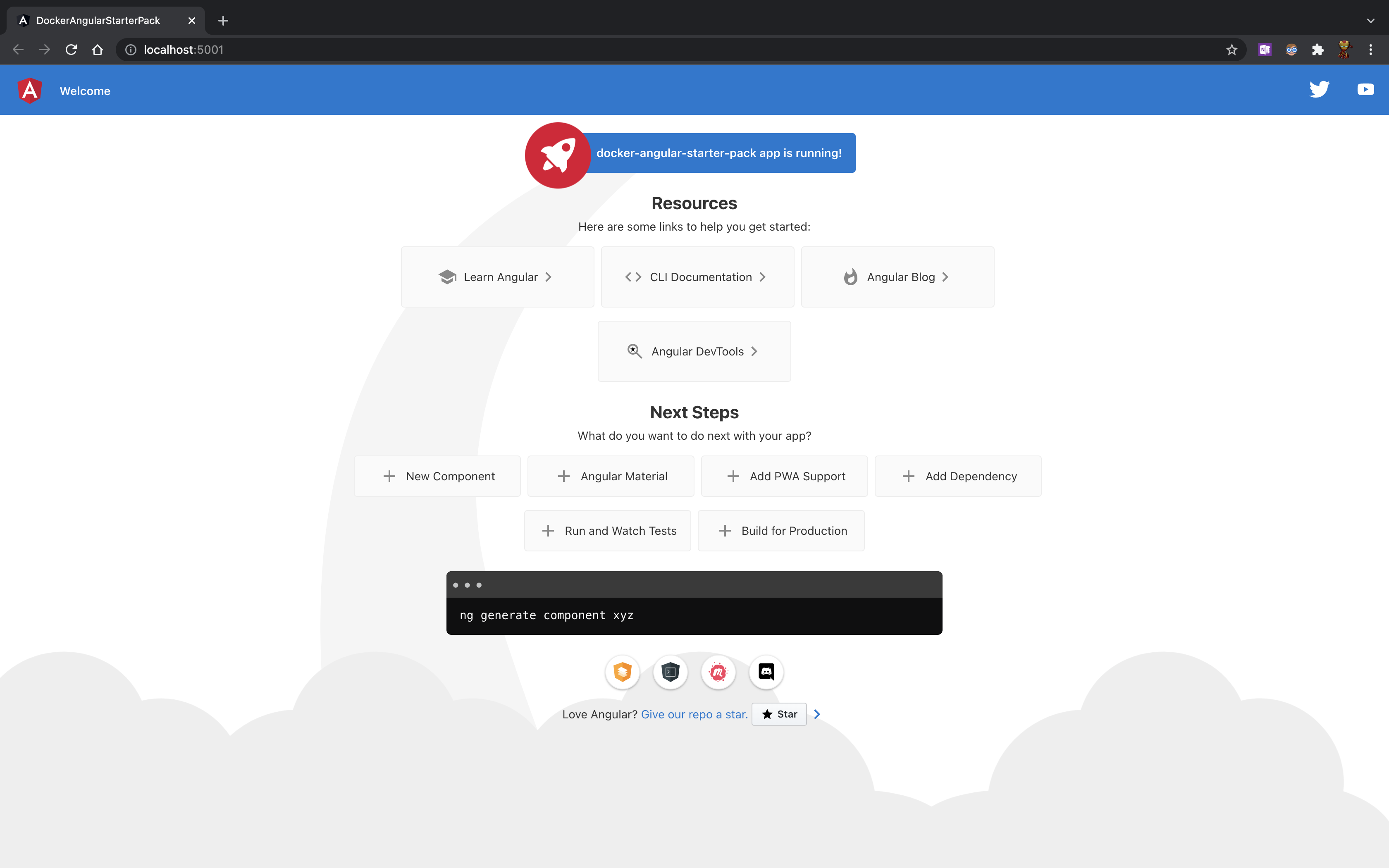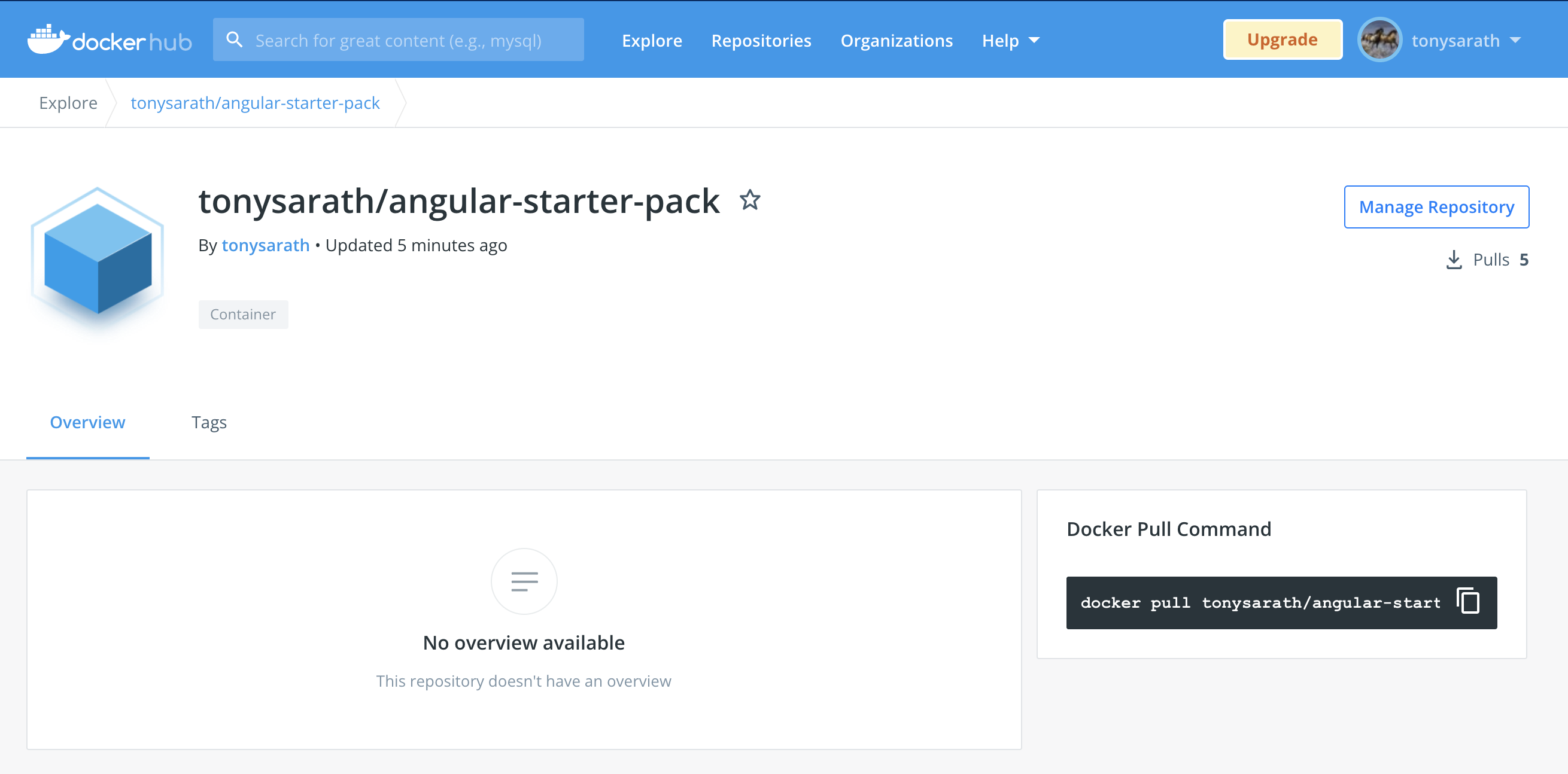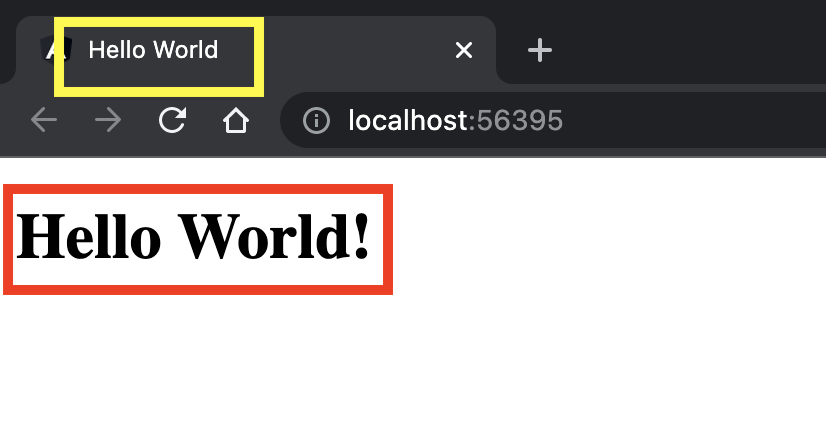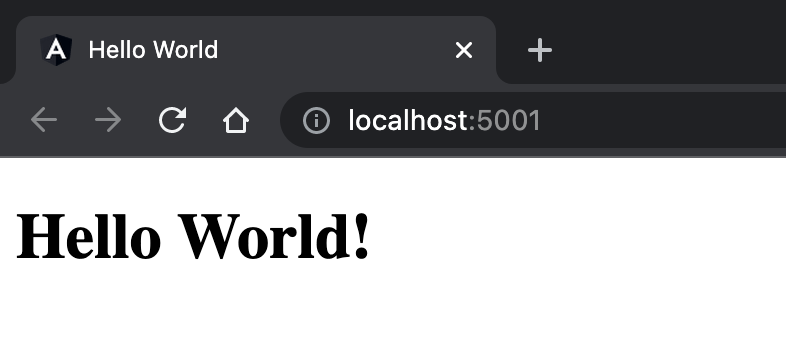This project was generated with Angular CLI version 13.0.1.
Run ng serve for a dev server. Navigate to http://localhost:4200/. The app will automatically reload if you change any of the source files.
Run ng generate component component-name to generate a new component. You can also use ng generate directive|pipe|service|class|guard|interface|enum|module.
Run ng build to build the project. The build artifacts will be stored in the dist/ directory.
Run ng test to execute the unit tests via Karma.
Run ng e2e to execute the end-to-end tests via a platform of your choice. To use this command, you need to first add a package that implements end-to-end testing capabilities.
To get more help on the Angular CLI use ng help or go check out the Angular CLI Overview and Command Reference page.
- create
Dockerfilein the root folder of project
#stage 1
FROM node:latest as build
WORKDIR /app
COPY . .
RUN npm install
RUN npm run build --prod
#stage 2
FROM nginx:alpine
COPY --from=build /app/dist/docker-angular-starter-pack /usr/share/nginx/html- there are 2 stage in the
Dockerfile - stage 1: build, mean it will run
nodecontainer to build our angular project into./dist/folder with the application name as package - Ex: in this case, I name my application as
docker-angular-starter-packso the package path will be./dist/docker-angular-starter-pack - stage 2: deploy application into docker image, this will copy the build package
docker-angular-starter-packinto nginx root path and build new image - Now let start to build it
docker build -t tonysarath/angular-starter-pack:latest .tonysarathis my docker hub accountangular-starter-packwill be the image name:latestis the tag- now show the image in my local machine
docker image ls# output
REPOSITORY TAG IMAGE ID CREATED SIZE
tonysarath/angular-starter-pack latest f7155d0dc74d 2 minutes ago 23.4MB- let run this container test if it works
- by default nginx will expose port 80, now I will NAT port 5001 of my localhost into port 80 of container
docker run -d -p 5001:80 --name angular-starter-pack tonysarath/angular-starter-pack# output
2fa9b0023825d1a542c41908cec17da409a833d45072459a5410368a2dcd35c1- check the docker process
docker ps# output
CONTAINER ID IMAGE COMMAND CREATED STATUS PORTS NAMES
2fa9b0023825 tonysarath/angular-starter-pack "/docker-entrypoint.…" 9 seconds ago Up 8 seconds 0.0.0.0:5001->80/tcp angular-starter-pack- start access the web application http://localhost:5001
open http://localhost:5001- login to your docker hub account
docker login- because I used to authenticated so it will use my existing tokens
# output
Authenticating with existing credentials...
Login Succeeded
Logging in with your password grants your terminal complete access to your account.
For better security, log in with a limited-privilege personal access token. Learn more at https://docs.docker.com/go/access-tokens/- now push
docker push tonysarath/angular-starter-pack:latest# output
The push refers to repository [docker.io/tonysarath/angular-starter-pack]
b643da88d51f: Pushed
3d71b657b020: Mounted from library/nginx
eabae5075c43: Mounted from library/nginx
385374b911f2: Mounted from library/nginx
5af959103b90: Mounted from library/nginx
ad93babfd60c: Mounted from library/nginx
1a058d5342cc: Mounted from library/nginx
latest: digest: sha256:78ebfe2a5936029bf880bf52e4eb1f74d665ad378283326266409b5fea90a9dc size: 1777- now check on docker hub
- here we go
- let say we update something in our application, and to get the container up-to-date, we need to re-build image
- then stop the current running container
- and run container again with new image tag
- in this example, I will clean the default angular page to just
Hello World! - let start:
- so I changed the page title of this file
src/index.html - and changed content of this file
src/app/app.component.html - the result of application turn to this
- now build image and run the container
docker stop angular-starter-pack # stop current running container
docker container rm angular-starter-pack # remove current container
docker build -t tonysarath/angular-starter-pack:latest . # build new image
docker run -d -p 5001:80 --name angular-starter-pack tonysarath/angular-starter-pack:latest # run container again from new image
open http://localhost:5001 # access our application- of course, we can always push our new image to docker hub.
docker push tonysarath/angular-starter-pack:latest



